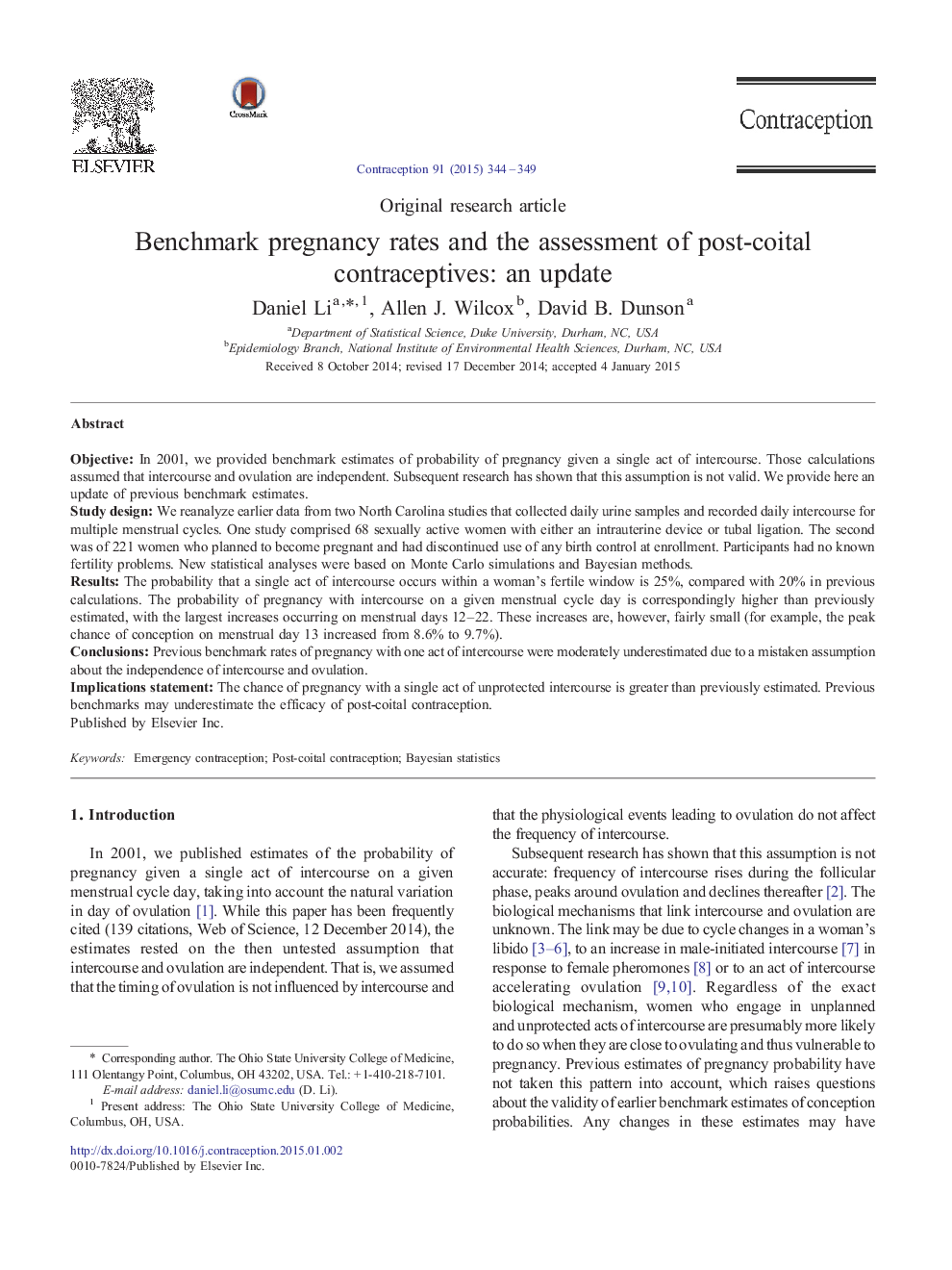| کد مقاله | کد نشریه | سال انتشار | مقاله انگلیسی | نسخه تمام متن |
|---|---|---|---|---|
| 6170720 | 1251414 | 2015 | 6 صفحه PDF | دانلود رایگان |
ObjectiveIn 2001, we provided benchmark estimates of probability of pregnancy given a single act of intercourse. Those calculations assumed that intercourse and ovulation are independent. Subsequent research has shown that this assumption is not valid. We provide here an update of previous benchmark estimates.Study designWe reanalyze earlier data from two North Carolina studies that collected daily urine samples and recorded daily intercourse for multiple menstrual cycles. One study comprised 68 sexually active women with either an intrauterine device or tubal ligation. The second was of 221 women who planned to become pregnant and had discontinued use of any birth control at enrollment. Participants had no known fertility problems. New statistical analyses were based on Monte Carlo simulations and Bayesian methods.ResultsThe probability that a single act of intercourse occurs within a woman's fertile window is 25%, compared with 20% in previous calculations. The probability of pregnancy with intercourse on a given menstrual cycle day is correspondingly higher than previously estimated, with the largest increases occurring on menstrual days 12-22. These increases are, however, fairly small (for example, the peak chance of conception on menstrual day 13 increased from 8.6% to 9.7%).ConclusionsPrevious benchmark rates of pregnancy with one act of intercourse were moderately underestimated due to a mistaken assumption about the independence of intercourse and ovulation.Implications statementThe chance of pregnancy with a single act of unprotected intercourse is greater than previously estimated. Previous benchmarks may underestimate the efficacy of post-coital contraception.
Journal: Contraception - Volume 91, Issue 4, April 2015, Pages 344-349
